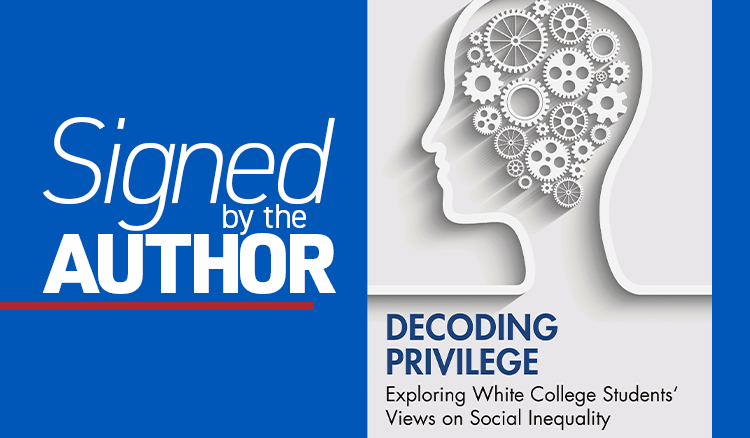 Decoding privilege: Exploring white college students' views on social inequality
Decoding privilege: Exploring white college students' views on social inequalityBy: Scott Tharp, Division of Student Affairs
"Decoding privilege: Exploring white college students' views on social inequality" examines how white students understand the concept of privilege so educators can more effectively teach students about social power and inequality. The text highlights three elements that influence how white college students understand privilege: ideas, beliefs, and feelings. As this volume demonstrates, examining all three aspects of students' understanding is critical for educators who wish to effectively educate white students about the nature of social inequality and specific manifestations of privilege. The book concludes with curricular and pedagogical considerations that educators may incorporate into their teaching practice.
What inspired you to write this book?
We live in a time when social justice education is under attack in educational spaces. This undermines an authentic commitment to inclusion and equity. To effectively engage this assault and negate these false narratives, educators must understand the central conceptions at the heart of these arguments. If educators develop a robust and empathetic understanding of these misconceptions, we will be more successful in our goal to cultivate knowledge, awareness and skills critical to cultural consciousness.
Persuade someone to read your book in less than 50 words:
Imagine you are talking with a student or colleague about social inequality when they state they feel social inequality does not really exist -- that it is actually a reflection of personal choices and poor circumstances. How prepared are you to engage them in a purposeful conversation? Do you understand what is driving their views to offer effective counterpoints? Would you be able to do this with empathy and compassion for how they have been socialized? If you are not sure or not feeling confident about your ability to do so, this book can help.
About the author:
D. Scott Tharp serves DePaul as both the assessment and effectiveness specialist in the Office of the Vice President for Student Affairs and as an adjunct faculty member in the master's in social work program. He is a scholar-practitioner and educational interventionist in the areas of social justice education curriculum design, facilitation and assessment.
Publisher and publication date:
Routledge, December 2021